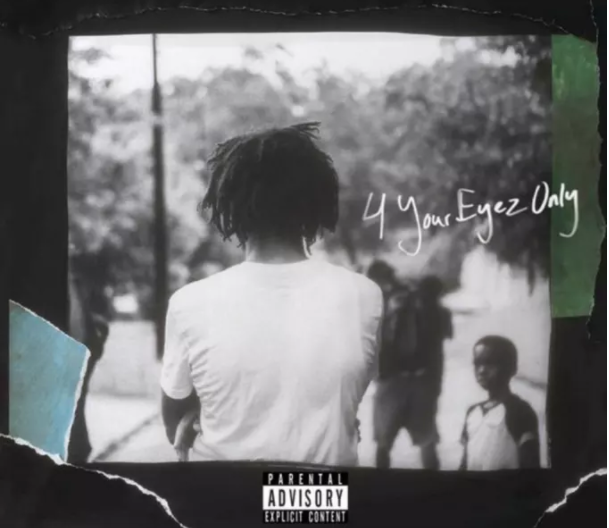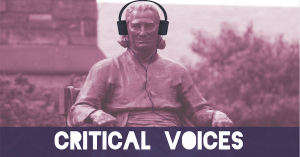Days before the release of his new album 4 Your Eyez Only, J. Cole released a short film documenting the creative process behind the album, with footage of Cole and musical collaborators at work in the studio and conversations between Cole and his friends. The film also included two new incendiary tracks, each with an accompanying music video. “Everybody Dies” features Cole riding through town on the back of a pickup truck, spitting rhymes like bullets. Over a head-bobbing beat, Cole calls out all the “eight week rappers” and “Lil’ whatevahs,” voicing his discontent at the rise of a weak generation whose shortcomings were showcased in the XXL Freshmen Class of 2016 cypher.
With the film’s second video, “False Prophets,” Cole made headlines and blew up twitter feeds for calling out Kanye West, criticizing his egoism and lamenting how the Chicago rapper will never top his “old shit.” The fact that the track dropped a week before Kanye met with president-elect Donald Trump makes Cole seem like even more of a clairvoyant. After witnessing the promising footage in the film and hearing two blazing, confident tracks, the world braced itself for J. Cole’s most explosive album yet–which is why it’s hard not to be a little disappointed with the final product.
4 Your Eyez Only is centered loosely around a narrative that follows the life of a man named James, presumably one of J. Cole’s childhood friends who fell victim to gun violence. The concept for the album isn’t new; Kendrick Lamar rapped from the perspective of ill-fated friends on a track from Good Kid, M.A.A.D City, and The Roots produced a reverse-chronological biopic of a fictional dead man in Undun. Plenty of MCs rap about dead friends, and while there is no doubt that J. Cole’s heart is in the right place, he just doesn’t possess the artistic vision or acuity to pull off such a work.
The opener, “For Whom the Bell Tolls,” offers an abstract view of death that hints at the protagonist’s acute awareness of his own mortality, a theme that is present throughout the album. “Immortal” targets the distorted lens through which gang members see life, ironically naïve in its statement “Real ni**as don’t die.” However, the track that follows, “Deja Vu,” completely derails the narrative. Its hedonistic lyrics are anchored by a cheap trap beat and the asinine refrain, “Put a finger in the sky if you wanna/ Put two fingers in the sky if you wanna.”
“Neighbors” is another track that seems out of place. It tells a story from Cole’s point of view (the perspective changes without warning) about living in a white neighborhood and being profiled as a drug dealer by his neighbors. The anecdote makes an important point about racial integration, but could have been related in a single verse rather than an entire song, and completely breaks with the established theme of the collection.
It isn’t until the final two tracks of the album, “She’s Mine Pt. 2” and “4 Your Eyez Only” that the biopic concept finally solidifies with a moving description of the birth of James’ daughter and the profound change the event provokes in his mentality. The protagonist goes from “never feeling more alive” on the penultimate track to feeling “like I won’t see tomorrow” as he senses his impending death and implores Cole to allow him to live on by playing the tape for his daughter. The album’s ending shows J. Cole’s storytelling abilities at their height—it’s just a shame the entire album isn’t on the same level.
Overall, the album has a high production value—Cole does a lot of the production himself, in addition to enlisting the help of experienced producers like Boi-1da and world class musicians like trumpeter Theo Croker. Musically, J. Cole’s style is unique and more sophisticated than most hip-hop out there. And even in their stunted state, his storytelling skills are better than those of many rappers; he means well and usually has a message behind his songs. So sure, J. Cole might be better than a Lil’ Yachty or a senile Kanye West, but is that really saying much? To continue to develop as an artist and make that leap into the upper echelon of rappers, Cole needs to set his sights on a higher standard. After promising but inconsistent releases like Born Sinner (2013) and 2014 Forest Hills Drive (2014), much of 4 Your Eyez Only seems like more of the same. What’s still missing from his oeuvre is a cohesive, innovative, complete album. I hope he delivers it someday.







